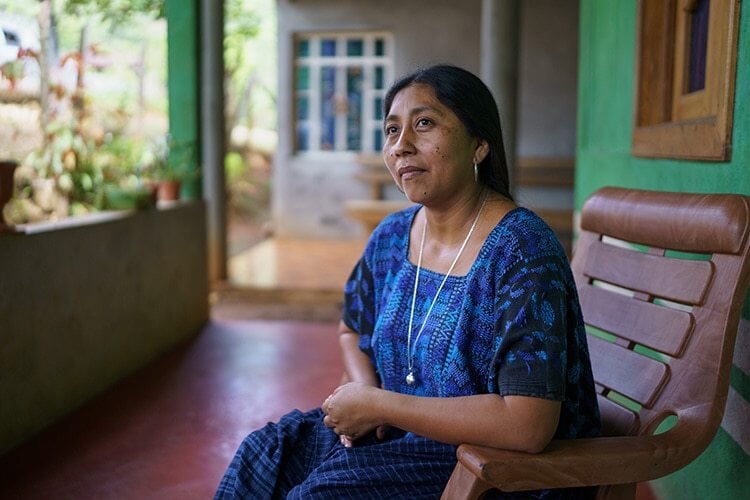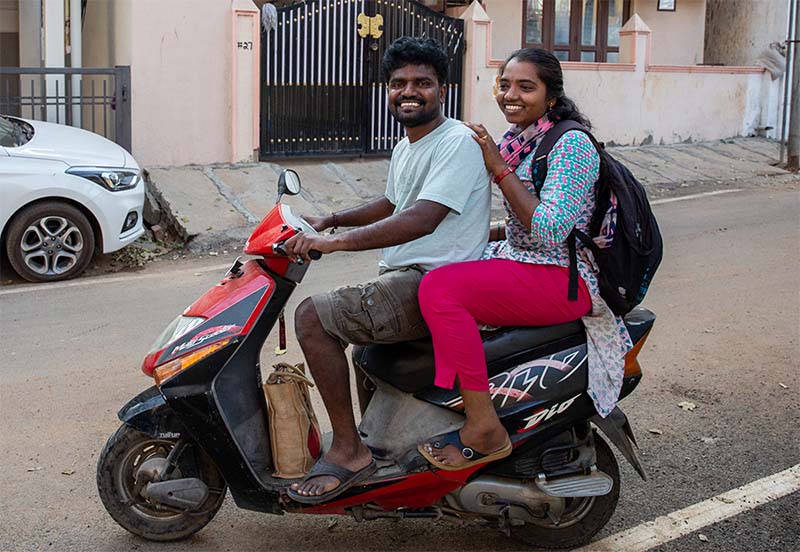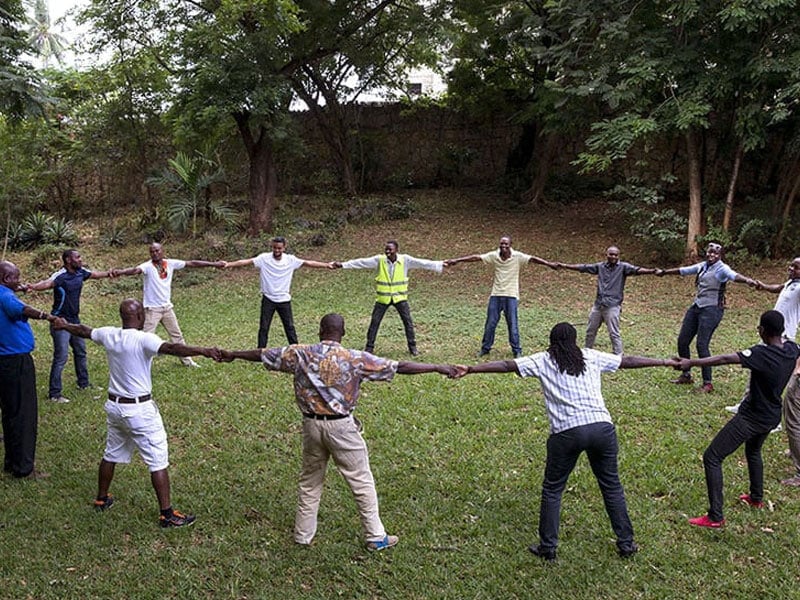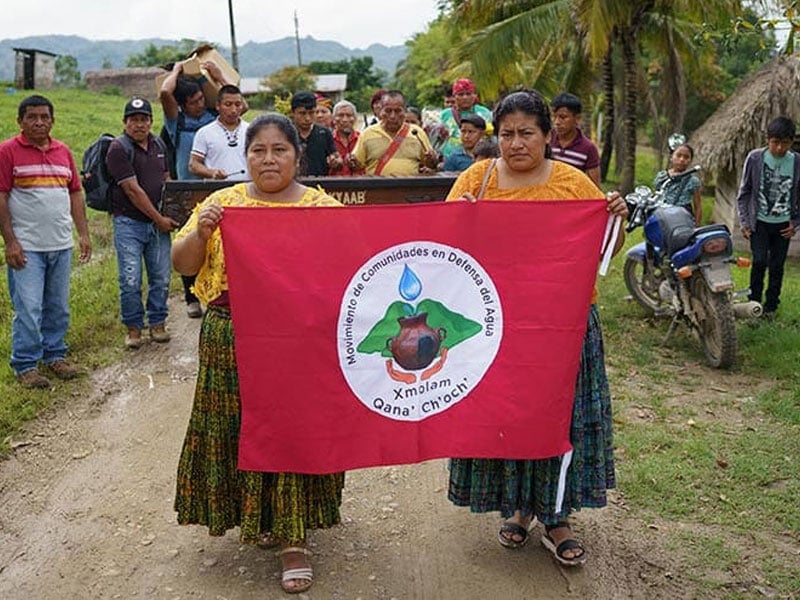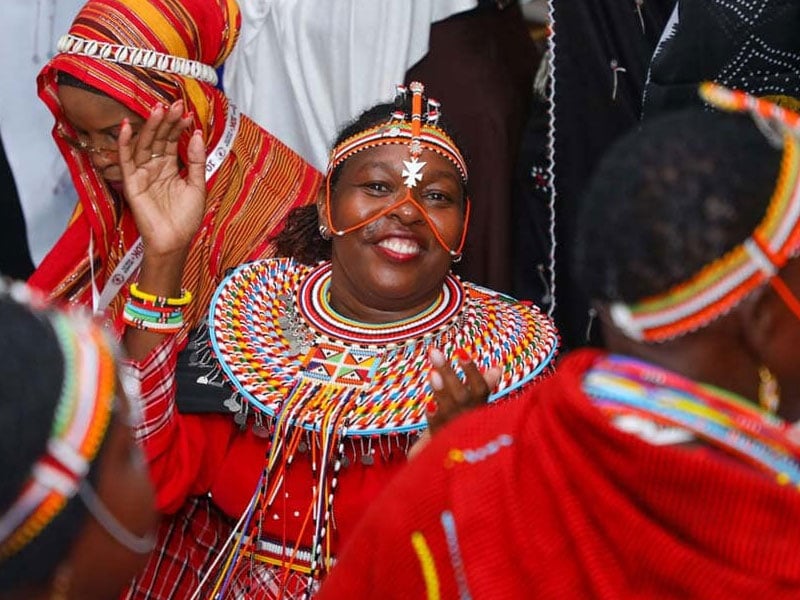With Valentine’s Day in just a few days, we’ve got love on our minds. The activists that you support through AJWS perform acts of love and kindness every day — defending human dignity, helping the oppressed, and building strong, tight-knit communities where people truly have each other’s backs.
But we wanted to spotlight a story this month about a particular type of love that can be difficult to cultivate: self-love.
In rural Chisec, Guatemala, AJWS partner Q’eqchi Women New Horizon Association empowers women who’ve survived domestic violence and live in a deeply patriarchal society to believe in themselves and reclaim their power. New Horizon helped Ana Elizabeth Pop Jor learn how to love herself — and now, she’s guiding others across the region to do the same.
“When women come, they are often on the verge of collapse,” she says. “We bring them back to themselves.”
A new horizon, finally in view: How one Guatemalan woman broke the cycle of violence

More Stories of Hope
- Last year, Thailand affirmed that “love is love” by legalizing same-sex marriage. But LGBTQI+ activists know there is still work to do. Take an inside look at how trans leaders in Thailand are preparing to fight for full equality — and change society as they know it.
- Tai and Pramote Phonpinyo met as student activists; today, the couple leads a grassroots movement of Thai farmers fighting the state for their ancestral land — and still make time to play with their grandkids. Read about their love story, and their powerful activism.
- For nearly a decade, hundreds of thousands of Rohingya people have been living in refugee camps in Bangladesh — after the Burmese military launched a genocidal campaign against them. In the media and public discourse, the crisis has been overshadowed by Ukraine, Gaza, and so many others. But as Rohingya activist and AJWS partner Lucky Karim writes in this New York Times op ed, “there is a sliver of hope for us.” Read her devastating but hopeful words here.
- Around the world, hydroelectric dams have damaged natural habitats and displaced countless communities while the energy they produce is often exported. AJWS partner Movement of People Affected by Dams fights back against corporations prioritizing profit over people. And sharing is caring. Read how these activists are spreading their experience and knowledge to communities far and wide.


In Bangalore, India, Kavitha and Narendra are challenging gender norms by building an equal partnership — sharing household and parenting responsibilities — with support from Samvada, an AJWS grantee that inspires young people to challenge patriarchal traditions and build the lives they want. Photo by Sara Hylton.

Speak up with the AJWS Action Network
Whether you mark Valentine’s Day or not this weekend, love is worth celebrating — especially in this time of outright cruelty coming from our leaders and even fellow citizens. The work that you support by standing with AJWS is innately human, loving, and compassionate: Our partners, and our entire community, believe that we’re all deserving of a life of dignity, joy and opportunity.
Chocolates and flowers can tell people we love them, sure. But standing up for people’s innate human rights? There’s no clearer message than that. You can support the rights and dignity of people around the world by speaking out against the global gag rule, which puts cruel restrictions on all U.S. funds.

We hope these stories help realize the power of love to guide the change we want to see. In that spirit, keep watch for the March Stories of Hope when we’ll bring you a profile of Tawanda Mutasah, AJWS’s new President and CEO, as he begins his change-making journey with us.
Until next month,
Your friends at AJWS


